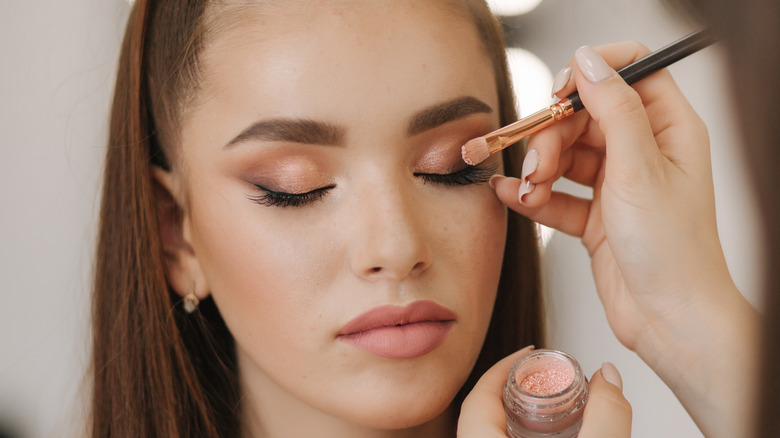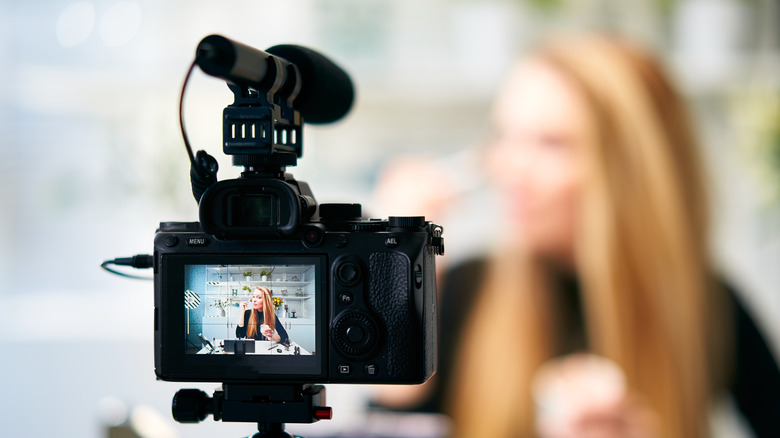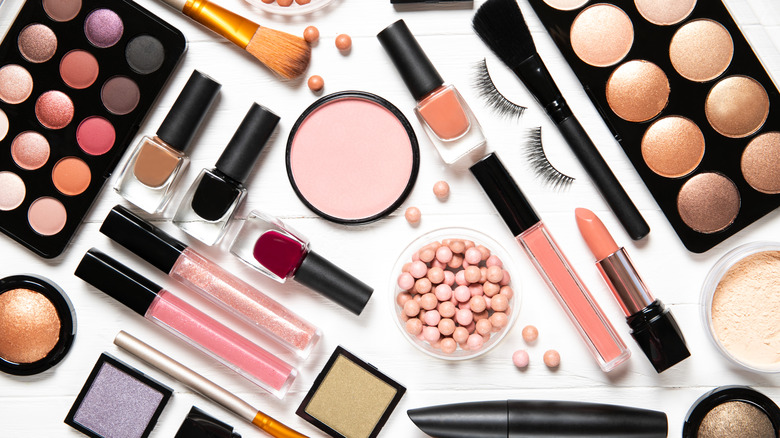What Professional Makeup Artists Really Think Of Beauty YouTubers
Remember back in the days when you would hire a professional makeup artist for any big event you were attending? Well, they're still around for hire. And the whole process of a professional showing up to your home to help you paint your face to perfection is just as glamorous as it sounds. Still, we have to admit that it's hard to shell out our hard-earned cash on a professional when we can just learn their beauty tips and tricks on YouTube for free. Or can we?
A beauty YouTuber is a relatively new profession. When Adrienne K. Nelson uploaded a YouTube video titled "Makeup Lessons – LOOK HOT in 5 minutes or Less" in 2006, she was largely credited as the first person to give makeup tutorials on the platform, per Insider. According to the outlet, Nelson's YouTube account shut down after a mere four videos. But she'd clearly stumbled across a money-making venture that future YouTube stars like Jeffree Star and Zoella would cash in on. As long as the Internet is around, beauty influencers will be taking the opportunity to make some money. But what do the real makeup professionals think about this new branch in the industry?
There is a lot that happens behind the camera
Unsurprisingly, not all professional makeup artists are thrilled with the beauty "professionals" on YouTube. Wayne Goss, who started out as a beauty YouTuber before becoming a professional makeup artist, told Cosmopolitan UK that a lot goes on behind the scenes of a YouTube beauty video. "Especially with larger channels," he told the outlet. "There are people editing the videos, there are people helping with the wording, there is lighting that you can't see and there are multiple cameras at every different angle to create the most beautiful shot." So what does Goss think of all the extra manpower and bling? "It doesn't inspire me to be better, to strive for more, it just makes me think there is something so fundamentally wrong," he admits.
While licensing requirements for professional makeup artists vary, Chron reports that most states ask that they pass a written exam and spend roughly 1,000 hours in education or work experience. On the flip side, YouTube has zero requirements. People can become beauty influencers on YouTube at any age or level of experience.
Should influencers call themselves professional makeup artists?
As Clean and Cruelty Free notes, one of the main accusations lobbied at beauty YouTubers by professional makeup artists is that these influencers haven't fulfilled the requirements needed to be considered professional. In addition, professional makeup artists believe that these influencers only promote their own products, or brands that pay them to do so, making their suggestions subpar and (at times) dishonest. Professional makeup artist and YouTuber Bee commented on a 2016 YouTube video, where she shared her own frustrations over the false tips and recommendations given to her clients by beauty YouTubers over the years.
"I have been a makeup artist for 6 years, almost 7 now," Bee wrote. "My struggles are because I once was respected as an artist having a higher knowledge than the average person on makeup techniques, formulations, products etc. Now, everyone thinks they know everything because XXXX on YouTube told them it was a good idea. A lot of the tricks, techniques and product recommendations mentioned on YouTube and Instagram etc. are wrong (at an artists standpoint)." She added, "I'm tired of having my knowledge challenged by someone who only does makeup on themselves." It's clear that beauty YouTubers and professional makeup artists share a passion for cosmetics. Perhaps they will eventually be able to call a truce and support one another, as long as beauty influencers keep things honest on YouTube.


